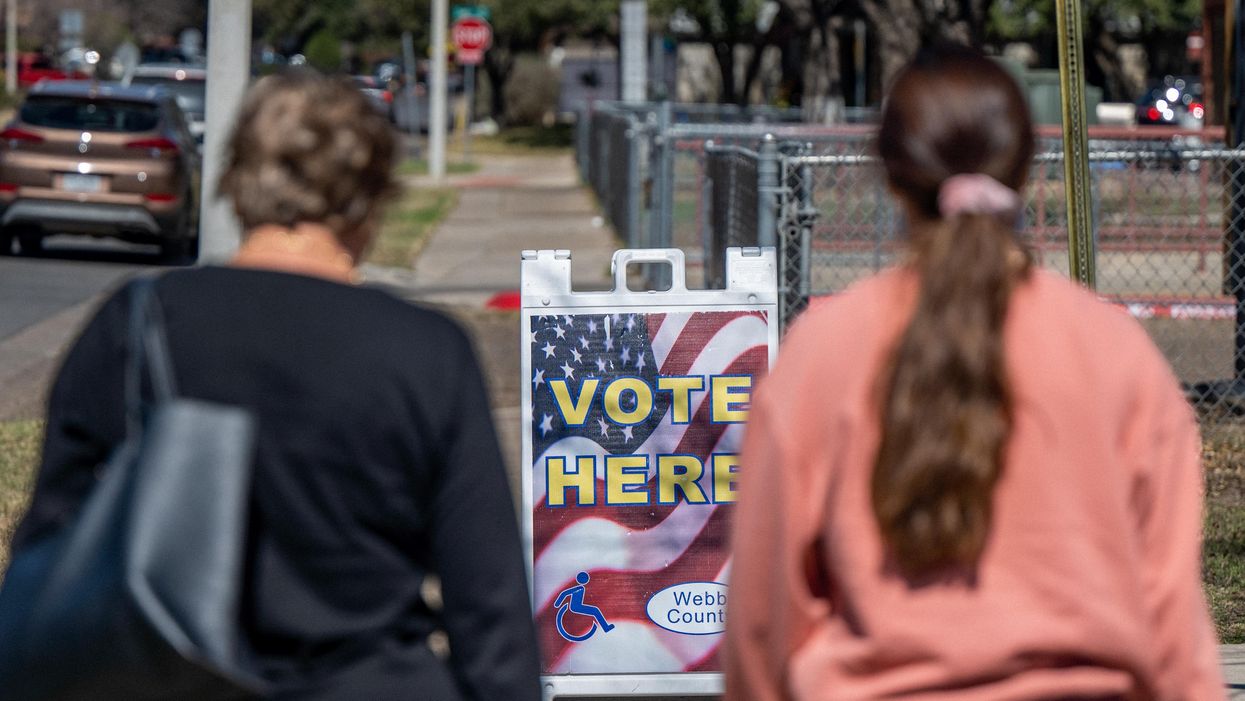Wasserstrum and Richards are the chair and vice chair, respectively, of Ranked Choice Voting for Texas.
On March 1, only 17.4 percent of registered Texans went to the polls to vote in our midterm primaries. On May 24, we will participate in an unnecessary party primary runoff election. Pandemic or not, runoff voting turnout has always been historically low and campaigning for a runoff between the primary and general elections can be costly. Imagine the effort and money that could be saved if a runoff election weren’t required.
Many local elections come down to a runoff, which requires people to make the effort to get out and vote a second time. But double the effort and twice the cost often lead to half the participation. Aren’t you tired of having to go to the polls twice to determine the winner of an election?
But there’s a better method for the Lone Star State: ranked-choice voting. RCV allows voters to rank their candidates in order of preference. If there is no majority winner after counting first choices, the race is decided by an "instant runoff." The candidate with the fewest votes is eliminated, and voters who ranked that candidate “No. 1” will have their votes counted for their next choice. This process continues until a candidate wins with 50 percent plus one of the votes.
We began to advocate for RCV in Texas because we saw the runoff problem over and over again, from two-round primaries to local elections. In Houston, the 2015 and 2019 municipal races offered stark examples of how our current runoff system fails voters. In the 2015 election, 52,000 fewer voters cast ballots in the decisive mayoral runoff than in the general election. In 2019, voter turnout in the runoff was even lower than 2015 – and a full 15 percent lower than the general. In both these cases, runoff turnout hovered at about 20 percent of all registered voters.
When all is said and done, candidates elected by a small, shrinking fraction of voters become representatives for all of us.
The fight for RCV is even further along in our capital, Austin, where voters overwhelmingly passed a 2021 ballot measure to try ranked-choice voting for its City Council and mayoral races. This came after City Council runoff elections in December 2020, which cost Austin taxpayers $162,000 while a mere 10 percent of voters turned out. Right now, even local use of RCV isn’t allowed under Texas law, so our next step is pushing our state lawmakers to allow this voter-approved measure to take effect.
Just like winning RCV elections, we hope that the key to cities and the Legislature adopting RCV is building a broad coalition. As activists, it’s our job to engage and educate voters, candidates, and representatives on why and how RCV is the better choice for Texas. In such a diverse state, there are many reasons.
For conservatives, the two-round runoff system goes against values of small government and fiscal responsibility. Right now, we’re spending millions of hard-earned taxpayer dollars to pay for elections where few voters participate. Holding a second election also increases the risk to election integrity.
And the second election is a particularly heavy burden on our military voters, many of whom are sending their ballots from deployment overseas. Their ballots often arrive after the deadline. In fact, six other states already use RCV for military and overseas voters.
Additionally, more women and candidates of color run in RCV elections – and win. With RCV, the fear of “ vote splitting ” is eliminated, meaning that multiple candidates of color or female candidates can run for office without fear that they will poach votes away from other candidates with similar identities.
As we make the case, we’re buoyed by real-life examples of ranked-choice voting working in city after city across the nation. It is the fastest-growing bipartisan voting reform in the country, and has now reached 55 jurisdictions and 10 million voters across the country. States like Maine and Alaska use RCV in all federal elections, and in 2021, RCV was used in high-profile elections across the spectrum, nominating candidates as different as Virginia Gov. Glenn Youngkin and New York Mayor Eric Adams.
RCV is a proven solution to the problems we face here in Texas. Now, it is our job as activists and voters to make it a reality in the Lone Star State.


















 Senate Committee on Commerce, Science, and Transportation ranking member Sen. Maria Cantwell (D-WA) (R) questions witnesses during a hearing in the Russell Senate Office Building on Capitol Hill on February 10, 2026 in Washington, DC. The hearing explored the proposed $3.5 billion acquisition of Tegna Inc. by Nexstar Media Group, which would create the largest regional TV station operator in the United States. (Photo by Chip Somodevilla/Getty Images)
Senate Committee on Commerce, Science, and Transportation ranking member Sen. Maria Cantwell (D-WA) (R) questions witnesses during a hearing in the Russell Senate Office Building on Capitol Hill on February 10, 2026 in Washington, DC. The hearing explored the proposed $3.5 billion acquisition of Tegna Inc. by Nexstar Media Group, which would create the largest regional TV station operator in the United States. (Photo by Chip Somodevilla/Getty Images)
